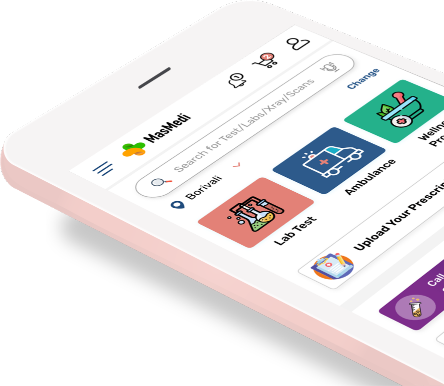Gender
Age Group
Male/Female
All Age Group
Complete Blood:-A complete blood count (CBC) is a blood test used to evaluate your overall health and detect a wide range of disorders, including anemia, infection and leukemia. A complete blood count test measures several components and features of your blood, including: Red blood cells, which carry oxygen. Fasting blood sugar (FBS) measures blood glucose after you have not eaten for at least 8 hours. It is often the first test done to check for prediabetes and diabetes. Random blood sugar (RBS) measures blood glucose regardless of when you last ate. Post Prandial Blood Sugar (PPBS):-Postprandial blood sugar  the amount of sugar in your blood after you eat  is an important indicator of metabolic health. If your blood sugar is high on a regular basis, you may be at higher risk of long-term health conditions, such as heart disease, stroke, and type 2 diabetes. Erythrocyte Sedimentation Rate (ESR):-Sed rate, or erythrocyte sedimentation rate (ESR), is a blood test that can reveal inflammatory activity in your body. A sed rate test isnt a stand-alone diagnostic tool, but it can help your doctor diagnose or monitor the progress of an inflammatory disease. Blood Urea Nitrogen (BUN):- Urea nitrogen is a waste product that your kidneys remove from your blood. Higher than normal BUN levels may be a sign that your kidneys arent working well. People with early kidney disease may not have any symptoms. A BUN test can help uncover kidney problems at an early stage when treatment can be more effective. Urea:-The urea travels from your liver to your kidneys through your bloodstream. Healthy kidneys filter urea and remove other waste products from your blood. The filtered waste products leave your body through urine. Lipid Profile:-A lipid profile is a blood test that measures the amount of cholesterol and fats called triglycerides in the blood. These measurements give the doctor a quick snapshot of whats going on in your blood. Cholesterol and triglycerides in the blood can clog arteries, making you more likely to develop heart disease. Potassium:- Potassium is found naturally in many foods and as a supplement. Its main role in the body is to help maintain normal levels of fluid inside our cells. Sodium, its counterpart, maintains normal fluid levels outside of cells. Potassium also helps muscles to contract and supports normal blood pressure. Urine Routine:- A routine urine culture detects the amount of germs (microorganisms like bacteria) present in the urine. Once a urine sample is collected, a technician will keep it in conditions where microorganisms can multiply. Normally, no more than a small number of germs will be in the urine if theres no infection.
Diabetes Profile - Standard includes 8 Test(s)
best labs
Option Near Youlab comparison
As per your budgetAffordable
Price GuaranteedUNBIASED ADVICE
On LabsSUNDAY LAB
Labs available on SundaysTracking health status made easy with the app. Now available on both Google Play Store and App Store. Book health tests and access your smart reports and health trackers anytime anywhere.
